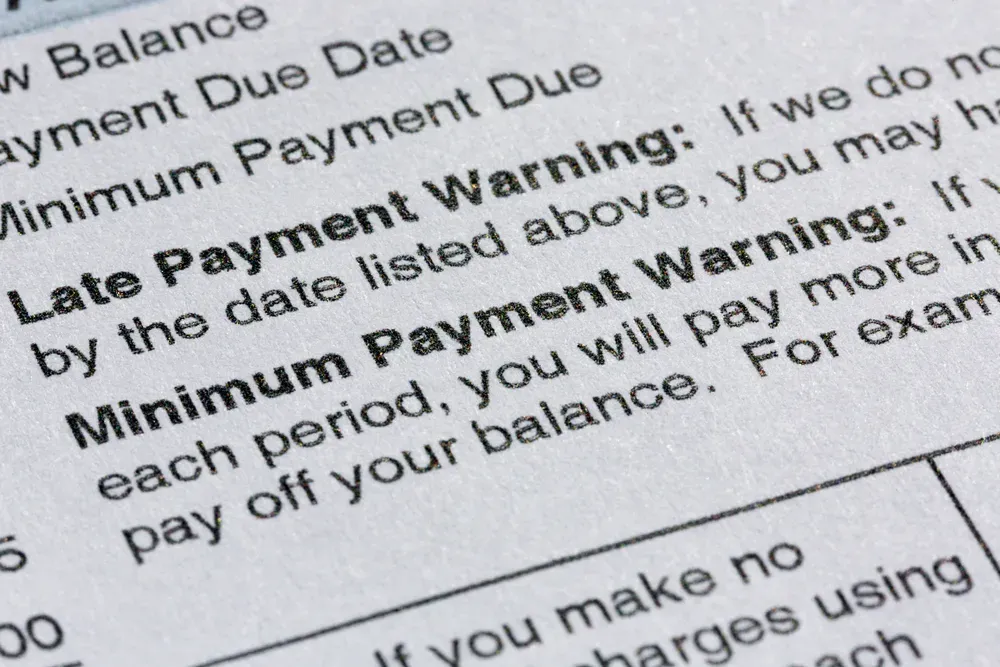Feds Target Excessive Credit Card Late Fees

A decade ago, Coongress banned excessive credit card late fees. Today, Americans aare paying about $12 billion a year for being late with their payments. The Consumer Financial Protection Bureau (CFPB) wants to change that.
The agency is proposing a rule that would ensure that over-the-top late fees are illegal, possibly cutting annual fees by as much as $9 billion.
“Over a decade ago, Congress banned excessive credit card late fees, but companies have exploited a regulatory loophole that has allowed them to escape scrutiny for charging an otherwise illegal junk fee,” said CFPB Director Rohit Chopra. “Today’s proposed rule seeks to save families billions of dollars and ensure the credit card market is fair and competitive.”
When someone misses a payment due date, even if they paid a few hours after the deadline, the cardholder may be hit with an exorbitant late fee that far exceeds the credit card company’s costs to collect late payments, CFPB said. These excessive late fees may not be needed to deter late payments, nor be justified based on the consumer’s conduct in paying late.
These late fees also may be on top of other consequences of paying late, such as a lost grace period on paying interest or a lower credit score, depending on how long the missed payment lasts.
$41 for missing a payment
Companies currently charge people as much as $41 for each missed payment, and these fees result in billions of dollars in annual junk fee revenue for credit card companies.
The CFPB’s proposed changes, which would amend regulations implementing the Credit Card Accountability Responsibility and Disclosure Act of 2009 (CARD Act), would ensure that late fees meet the Act’s requirement to be “reasonable and proportional” to the costs incurred by issuers to handle late payments.
Specifically, the proposed rule would lower the immunity provision for late fees to $8 for a missed payment as well as end the automatic annual inflation adjustment. The proposed rule would also ban late fee amounts above 25% of the consumer’s required payment.
The Federal Reserve Board created the immunity provisions to allow credit card companies to avoid scrutiny of whether their late fees met the reasonable and proportional standard. Over time, those provisions have risen with inflation to $30 for an initial late payment and $41 for subsequent late payments.
The CFPB estimates that the income generated by the largest issuers from late fees is approximately five times greater than the collection costs that the companies incur for late payment violations. In 2020, for example, credit card companies charged approximately $12 billion in late fees, which represented more than 10% of all credit card interest and fees charged to consumers.
The CFPB’s proposed changes would, if finalized:
- Lower the immunity provision dollar amount for late fees to $8: The CFPB has preliminarily found that late fee income exceeds associated collection costs by a factor of five. Because the immunity provision currently allows issuers to charge late fees of up to $41, the CFPB believes that a late fee of $8 would be sufficient for most issuers to cover collection costs incurred as a result of late payments.
- End the automatic annual inflation adjustment: The CFPB’s proposal would eliminate the automatic annual inflation adjustment for the immunity provision amount.
- Cap late fees at 25% of the required minimum payment: The current rule allows a card issuer to potentially charge a late fee that is 100% of the minimum payment owed by the cardholder. The CFPB proposes to restrict any late fee charge to 25% of the minimum payment to be more consistent with Congress’s intent to authorize only reasonable and proportional late fee amounts.
